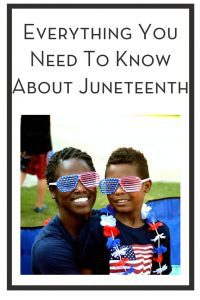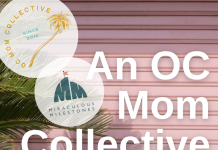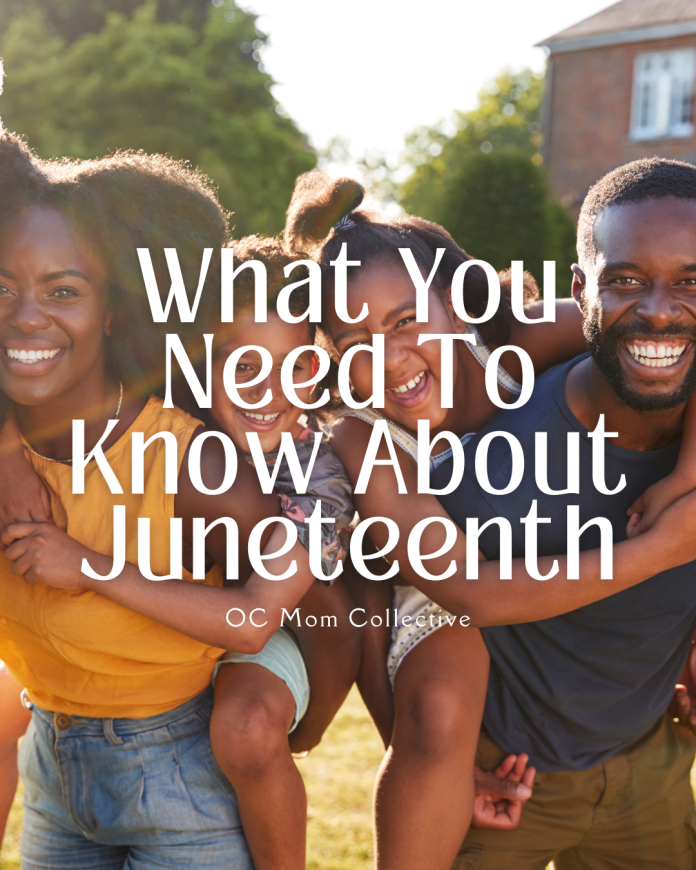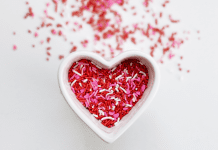Have you heard of Juneteenth? I will admit that I didn’t know about it until sometime within the last several years when a friend mentioned to me how it was part of her family tradition.
Despite what I had (not) learned in history textbooks during school, Juneteenth is the oldest national celebration for the end of slavery after the US Civil War. In certain parts of the country, like the one my friend grew up in, it’s been celebrated every June 19th going back as long as she could recall.
Juneteenth History
Actually, according to the website Juneteenth.com, it was first celebrated in 1865. Though the Emancipation Proclamation had been signed more than two years earlier in 1863, it was on June 19th, 1865 that Union soldiers arrived in Galveston, Texas and announced that the war had ended and slaves were now freed from bondage.
Records say that the reaction to this news, albeit 2+ years delayed, by the city’s enslaved population was so euphoric and celebratory, it immediately became a tradition passed down amongst former enslaved families and quickly spread across the country.
According to Western Maryland’s Historical Library, Juneteenth experienced a resurgence in interest during the Civil Rights Movement, organized by Dr. Martin Luther King Jr, and most memorably noted in a speech on June 19th, 1968 during the Poor People’s Campaign by his widow after he had been tragically assassinated.
It may be news to you (like it was to me) that Juneteenth is officially designated a holiday in almost all 50 states. Juneteenth was officially voted into being a US Federal holiday by Congress and the bi-partisan bill (meaning it was supported by both Republicans and Democrats) and was signed into law by President Biden on June 17, 2021. June 19th is now officially known as Juneteenth National Independence Day and is the first new federal holiday since Martin Luther King Jr. Day was established in 1983.
I went to a very progressive elementary school in New York City where diversity and social justice were prioritized, and yet I’m fairly certain we were never taught about this holiday of Juneteenth. I’m guessing it wasn’t a regular part of most school curriculums across the country when you were growing up either, except perhaps for in Texas where it began.
So while I am far from a Juneteenth expert, I wanted to write this post to share with you what I have learned about this important celebration of American history, and ways that you can learn more about it too. Please also click any of the highlighted links above in this post to learn more about it from other sources. I’m including a reading list at the end of this post for good books you can read with your children about it too!
Juneteenth Celebration
Juneteenth is also known as Freedom Day, Emancipation Day, Jubilee, and American’s Second Independence Day, among other names. Whatever your tradition is to call it, there are many different ways to celebrate this occasion (like any other major holiday) but a few key components are essential:
#1 – Family
Juneteenth is a time to gather with family and reflect on both the positives of freedom and the painful memory of slavery’s history. This year in particular has been especially painful in the history of U.S race relations due to the tragic events that inspired the Black Lives Matter protests, and the resulting efforts to change our country’s systemic approach to racism.
If your family wasn’t directly affected by slavery or subject to racial discrimination, consider reading this post about how to teach your kids to be anti-racist and resolve to take one step forward in the march towards racial equity in the US.
#2 – Food
Ah yes, what holiday celebration would be complete without delicious food! And let me tell you, the traditional Juneteenth dishes are mouth-watering. This is a holiday of abundance, to celebrate freedom and good fortune. When multiple families gather, typically everyone has to bring a dish, and expensive meats abound. A lot of the traditional dishes are also native to Texas where the holiday began. Soul food staples like BBQ, collard greens, watermelon, and sweet potatoes, all of which were typical Texan crops according to this article by the Daily Texan.
Generally speaking, anything that is the color red is traditional to eat for Juneteenth. Red may symbolize the blood that was shed to win emancipation. Red velvet cake, red beans, and strawberry pie for instance. I’ve also read that strawberry soda is a traditional drink at Juneteenth picnics. Yum!
#3 – Celebration
Unlike the Jewish holiday of Passover, which marks the ancient Jews’ emancipation from slavery in Egypt, there are no ornamental bitter herbs and hours-long old testament reading at the table before you can eat. (And I say this with love as someone who was raised sitting through many a Passover Seder).
Instead, Juneteenth is a party! There are parades, barbecues, music, dancing, art. Even rodeos, fishing, historical reenactments, and special baseball games. Fancy dress and Miss Juneteenth competitions abound. Basically everything you can imagine doing if you were finally freed from generations of oppression and physical abuse. More recent Juneteenth celebrations have also included voter registration efforts.
#4 – Remembrance
Juneteenth is also a time of remembrance. Back when slavery was still not quite a distant memory, people would share their experiences before emancipation, as a reminder for what they had lived through. I don’t know for certain, but I wonder if this is also a bit like how we say now of the Holocaust to never forget. Because once you forget that terrible history, and forget what must be done to avoid it, it’s bound to repeat itself. Either way, Juneteenth is a time of reflection. Some may read the Emancipation Proclamation out loud. Others may read works by great Black American authors.
For those who are religious, there is usually prayer involved as well, to thank the heavens for the gift of freedom, though technically speaking it was bestowed by President Lincoln and a legion of Union soldiers, more than 179,000 of whom were Black.
What’s It All Mean?
Obviously there are many reasons for – and ways to – celebrate Juneteenth. Ultimately, my admittedly fresh understanding is that it is a time to recognize Black history and the importance of this culture in America both past and present. It’s a time to celebrate the many important accomplishments of Black Americans, to instill pride, and to inspire future generations to reach ever higher echelons of achievement and equality.
For more Juneteenth resources and information, check out these posts by our sister sites in Milwaukee, Dallas, Cincinnati, and Oklahoma City.
Our Military Moms Blog sister site put together this fantastic primer on 10 Female Abolitionists To Inspire Anti-Racism Today.
This post from the Conscious Kid with insight from Black scholars and scholars of color about how to correctly and sensitively speak about slavery is very helpful.
We’re so grateful to have the opportunity to help you learn about Juneteenth and would highly encourage you to seek out more from other creators with more expertise as well!
Juneteenth Children’s Reading List
Here are some great books you can read with your children (or have them read to you) which explain more about the Juneteenth holiday. Please note that this post contains Amazon Affiliate links, from which we may make a small commission at no additional cost to you.
The Story Of Juneteenth: An Interactive History Adventure – By Steven Otfinoski
Juneteenth For Mazie – By Floyd Cooper
All Different Now: Juneteenth, The First Day Of Freedom – By Angela Johnson
Sophie And Lelah Celebrate Juneteenth – By L Monique Gonzalez
Juneteenth, Celebrating Freedom – By Julian Van Dyke
Juneteenth Paper Dolls – By Ms Nova M Edwards
Juneteenth: A Novel – By Ralph Ellison
Do you celebrate Juneteenth? Have any traditions that aren’t mentioned in this post? Please let us know in the comments!





















